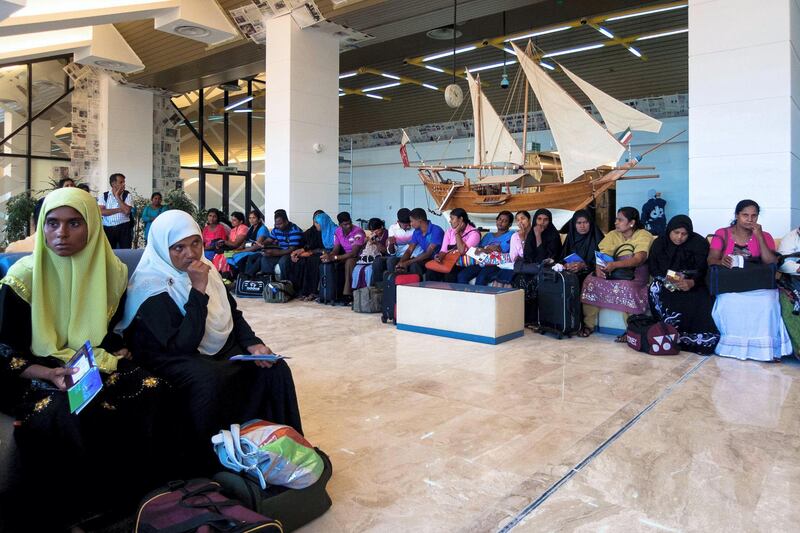Chef Sheikh Firdous has been desperately trying to take a flight from Kuwait City to India’s eastern Kolkata city to meet his mother for weeks.
The coronavirus pandemic means the restaurant where he works is shut, but the 22-year-old is worried about leaving the oil-rich nation after Kuwaiti legislators proposed a new quota for the number of foreign workers allowed to live in the country.
The law could mean hundreds of thousands of Indians will be forced to leave as it states the community – one of the largest in the country – should not exceed 15 per cent of the national population. There are currently about a million Indians living in Kuwait, a country of 4.1 million.
“What if I am not allowed to come back?” Mr Firdous said.
“My life would be destroyed ... The situation in India is extremely bad ... there are no jobs. I will get way less salary."
The young chef moved to the Gulf nation in 2018 and started working for a multi-cuisine restaurant in Kuwait’s Hawally city, earning enough to support his widowed mother in India and securing his future.
Although, he has been out of work for the past four months because of the pandemic and the subsequent restrictions, he is hopeful that he will regain his employment after the health emergency is over.
Kuwaiti Prime Minister Sheikh Sabah Al Khaled Al Sabah said last month that the country would like the number of foreign workers to drop from 70 per cent of the population to 30 per cent. More than 3 million people in the country are non-citizens, with Egyptians the second largest of the expat population.
Anti-immigration sentiments have become shriller across the world as countries deal with economic slowdown and growing unemployment because of the raging pandemic.
The proposal has caused panic among the Indian community, although it was still unclear which sectors will be affected or when will be the cut off date for securing a residency.
About half a million Indians are employed in the private sector as engineers, doctors and IT experts and more 300,000 are involved in blue-collar jobs as drivers, gardeners, cooks and housemaids, according to the Indian Embassy in Kuwait.
Indians began migrating to Kuwait in the 1970s following a boom in the tiny-nation’s economy, mostly driven by oil exports, and since then have played a pivotal role in the development of the country.
Lack of opportunities and poor living standards in the South Asian nation has made the Gulf a popular destination for job seekers, hosting more than 10 million Indians.
In 2018, Indians living in Kuwait sent home US$4.8 billion in remittances.
Experts say the proposed repatriation of thousands of Indians followed by restrictions on foreign worker numbers will deal a crippling blow to job hunters in India, who are seeking greener pastures as New Delhi struggles to revive its sluggish economy and unemployment rates are at a 45-year high.
"The proposed bill will affect Indian community badly. If the bill is passed, the impact will be huge," said Ashraf Ali, chairman of recruitment consultancy HR International globally, told The National.
“As many as 600,000 to 800,000 Indians could lose their jobs and be evicted from Kuwait."
Although approved by the National Assembly committee, the bill will now be referred to the concerned committee for consideration.
The move could impact the bilateral relations between India and Kuwait, which have improved under Prime Minister Narendra Modi's government.
The Indian government is yet to react to the proposed law, but its foreign ministry said they were watching the developments closely.
“We have nothing to say on this because it is still at committee level; it is still to be introduced in parliament,” said an official at the ministry.
Experts said the proposed law was not aimed at India, but questioned the rationale behind it.
“The main point to be noted is that every worker in Kuwait has gone there legally, against a legal contract and a visa issued by the state of Kuwait,” said Talmiz Ahmed, a former Indian diplomat.
“The services of expatriates have transformed the small desert kingdom into a modern flourishing state. The proposal betrays a serious ignorance with regards to the history of recruitment of foreign workers in Kuwait and the ground reality that prevails in that country."



















